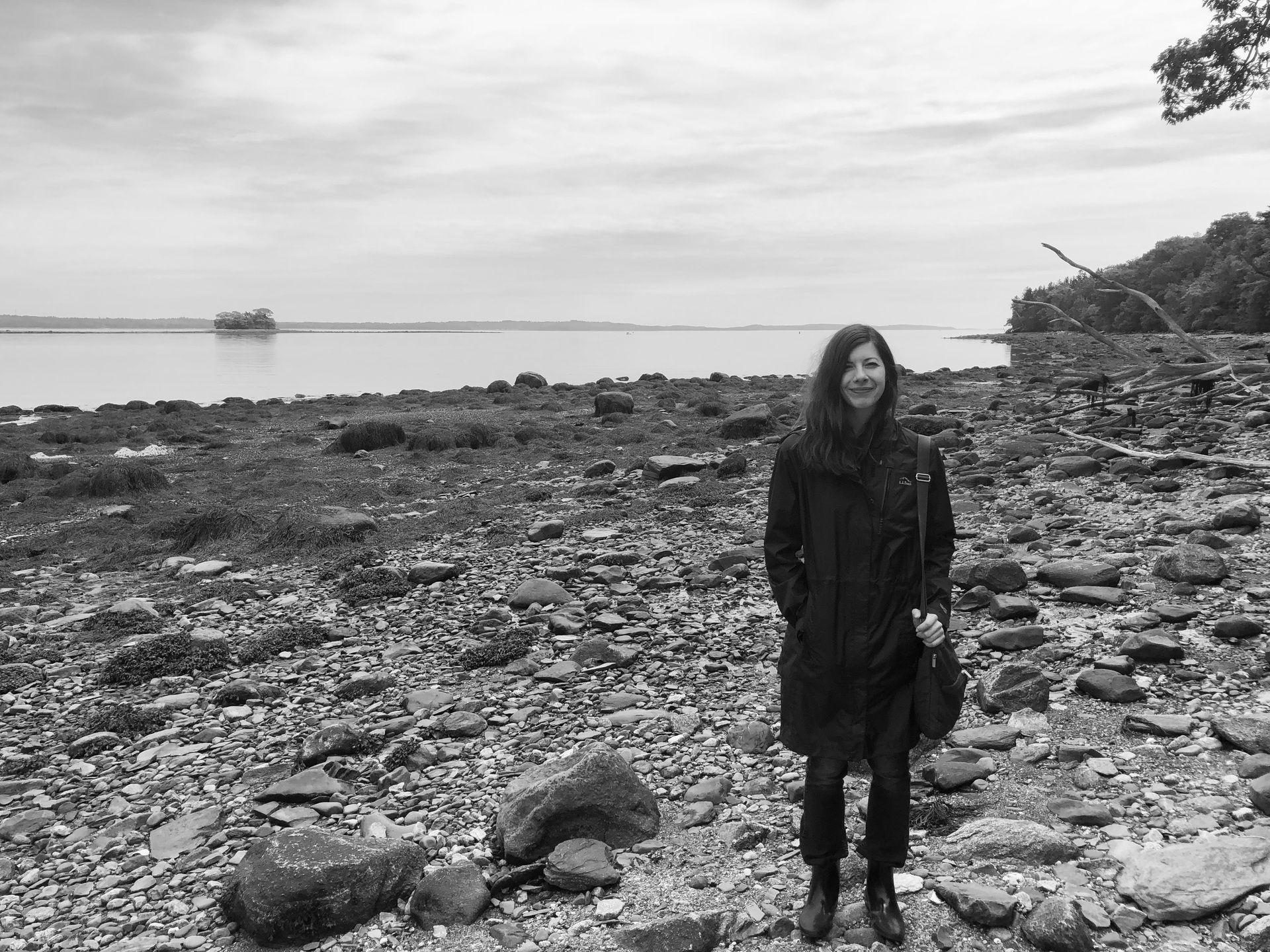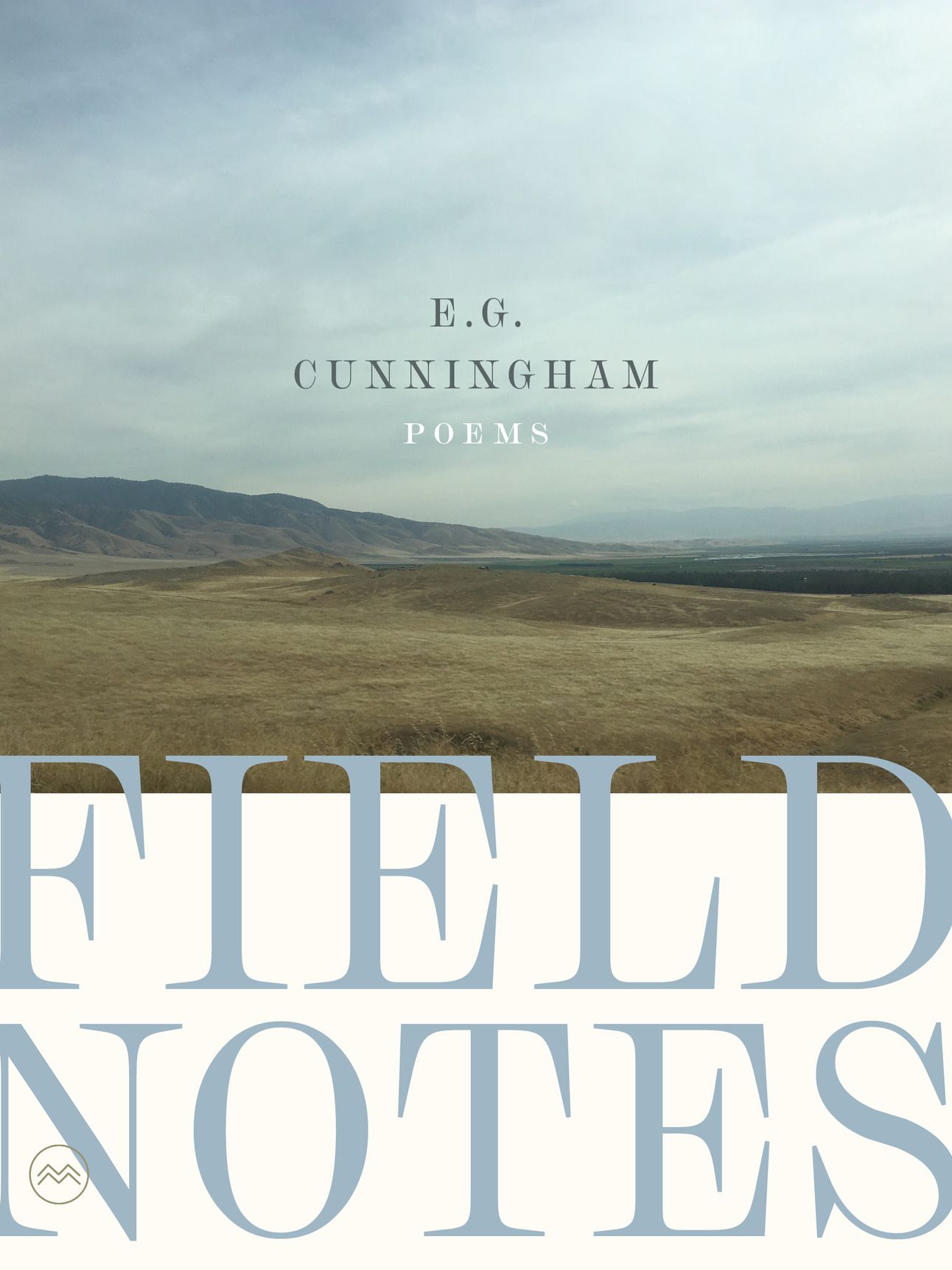- River River Books' Newsletter
- Posts
- Five Questions with Author E.G. Cunningham
Five Questions with Author E.G. Cunningham
We’re excited to present our Five Questions author interview with E.G. Cunningham, where YES! We entice you, our gentle readers, into preordering your copy of Field Notes, today.
Thanks for supporting small presses and their authors—every preorder counts to us, and goes towards our design, printing, and shipping costs.
The lyric vignettes and photographs in Field Notes operate as a kind of rotating mobile, suspended in the gaps of history and memory and held together by connective threads of association.
How does the idea of place, something we love at River River Books, shape your collection?
Questions of place are central to this project. There’s a line early on in the collection about “writing placement,” and it seems to me that this is one of the fundamental paradoxes of our time. In its noun form, place refers to positionality: an area, an anywhere, a sociopolitical allowance, a home. As a verb, place suggests the active construction of those positionalities: to be among, to set into a particular arrangement, to recognize. Field Notes considers all of these definitions of place, sometimes simultaneously: what does it mean to arrange, for example, one’s sense of “anywhereness” while also (re)constructing ideas of home? What are the complications of recognizing one’s place(s) in the world, especially as among the layered histories of others’ placements? There remains, too, the question of continued identity: what happens to our personal and collective narratives as places change?
What is a poem that you see as a particular driving force in your collection, and why?
What a thoughtful question! The lyric vignettes and photographs in Field Notes operate as a kind of rotating mobile, suspended in the gaps of history and memory and held together by connective threads of association. For that reason, there’s not one specific piece that drives the collection; instead, the vignettes and images are engaged in a fluid call-and-response pattern that complicates meaning with each addition. I suppose for this collection the inverse of a singular driving force holds true: remove any one piece, and the shape and meaning of the whole change significantly.
What was a significant revision that occurred along the way?
When I began writing Field Notes, I was interested in playing with repetition as a way of anchoring and refracting language—to bend and shape the meaning of words as they pass through different contexts. Because of this somewhat restricted method of composing, the revision stage was similarly exacting: many small substitutions, deletions, and rearrangements at the syntactic level, rather than any major overhauls. Perhaps more thematically significant is the arrangement of the photographs. I created several drafts before deciding on a final order.
At what stage did your final title emerge—early, late? How did it help with your collection’s conception?
The title emerged quite early, after I’d written two of the vignettes in the collection. I was standing at the window in my former apartment, which overlooked a field (now a gas station), and there was the title, invisible and obvious.
What’s something you wish every reader could know about you as the writer of Field Notes?
This collection is, in many ways, an attempt to articulate certain flavors of exile. There’s the nearly universal experience in which we’re exiled from our personal and collective histories, the pervasive and accelerating displacement of people across the globe, the relational and psychic flavors of exile resultant from those thefts and erasures. All of the photographs in Field Notes were taken in the United States; many of them were moments I captured during cross-country moves necessitated by the strictures of the job market. The shapeshifting identity of this country was apparent on those trips: a bucolic stretch of seemingly undisturbed land turns out to be, upon closer inspection, rows of feed crops owned by multinational corporations; the local fairgrounds and its neighboring fields once held thousands of people in detention during Japanese internment; tomorrow’s resort housing is today’s meadow. I’m interested in how we’re all constituted by such temporal layers, in how we unconsciously uphold or refuse systems, and I’m curious about how such metaphysical exile might shape our futures.
Preorder Field Notes by E.G. Cunningham today!

E.G. Cunningham
E. G. Cunningham was born in South Carolina and grew up in Italy and Florida. She is the author of the full-length poetry collection Ex Domestica (C&R Press, 2017), and two chapbooks, Apologetics (FLP, 2017) and Oranges for Venus (Tilted House, 2024). Her work has appeared in The Abandoned Playground, Colorado Review, The Gettysburg Review, The Nation, Poetry London, The Poetry Review, Puerto del Sol, Southern Humanities Review, ZYZZYVA, and other publications.
